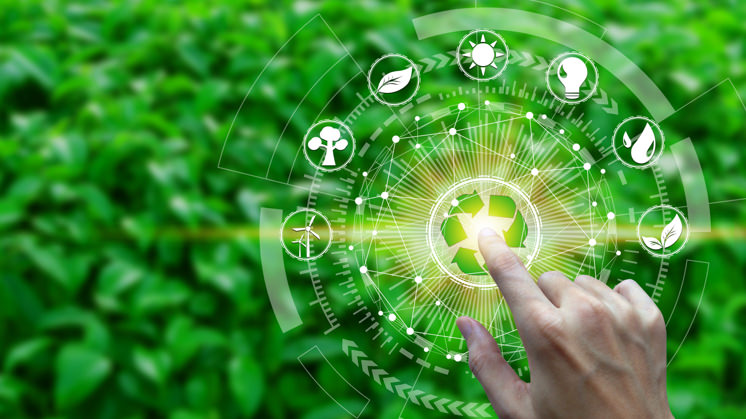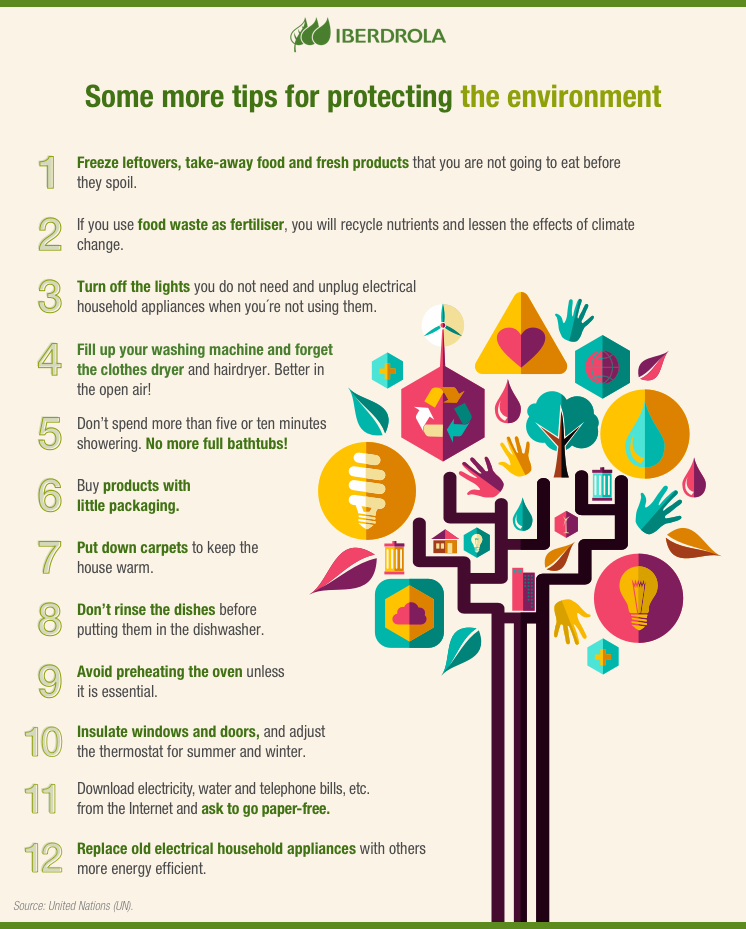Actions that protect the environment
Responsible consumption, a key to protecting the environment
Are you sure you know how to take care the environment? Many of us think we lead a nature-friendly life, but our consumption habits give us away. Many little habits that seem to sustainable actually polute. Here are five of the most harmful habits for the health of our planet.

Consumption habits to fight pollution
If we reach 9.7 billion people in the world by 2050, as precited by the United Nations (UN), we will need almost three planets' worth of natural resources to be able to provide for ourselves and live as we do now. But there is only one Earth, so everything we do for it, no matter of small, is of great importance.
We uncover five everyday practices you thought were harmless, or even environmentally friendly, but which cause considerable damage to the environment.
 Eating too much meat, fish and fruit
Eating too much meat, fish and fruit
The OECD indicates that 22% of greenhouse gases (GHG) are produced by the agricultural sector. The meat industry, for example, has a negative impact on land use, as 75-80 % of the world's agricultural land is used for livestock production, whereas if the same land were used for growing vegetables, 4 billion more people could be fed.
Mass fishing does not help the environment either, as it degrades the biodiversity of marine ecosystems. It is also recommended that fruit be consumed responsibly when it is in season.

 Buying coffee pods and tea bags
Buying coffee pods and tea bags
In Europa and America, we consume 60 billion coffee capsules per year according to a survey by Craft Coffee Spot. These are mostly made of aluminium and plastic, a fact that makes them a clear enemy of the environment.
The United States, Italy and Spain are the countries with the highest consumption of these single doses, which, moreover, we do not usually recycle (only 27 % end up being recycled), or we do it badly, as the legislation does not consider them to be packaging and they should be deposited at special collection points.
Tea bags also contribute to environmental pollution: their packaging is harmful to our planet because it contains nylon or polyethylene terephthalate (PET), a type of plastic derived from petroleum. Approximately 25 % of the bag is considered to be single-use plastic, which is in direct contravention of the EU's effort against this type of product.
It is therefore advisable to reduce the consumption of these products and opt for more sustainable alternatives such as traditional coffee machines or bulk tea.

 Using paper bags
Using paper bags
We think that because they are made of paper they are not as harmful as the five billion plastic bags that, according to the UN, we use in the world every year. But the reality is quiet different: they are hardly reused and often end up in the organic waste bin.
In addition, the energy cost of making a paper bag is four times higher than for a plastic bag and its production requires a lot of water and wood, emits harmful gases into the atmosphere and uses chemicals that pollute water resources and damage ecosystems. A good substitute for paper bags is cotton bags, which are strong, washable and reusable.

 Washing with non-ecological detergents and softeners
Washing with non-ecological detergents and softeners
Most laundry soaps are toxic, as they contain dyes and other pollutants such as phosphates, surfactants, 1.4 dioxane solvent or optical brighteners that never degrade. These components cause irritation and allergies, pollute water and damage marine ecosystems.
The carbon footprint of detergent use in the US alone amounts to 218 kg per household per year, plus the energy cost of the washing machine and dryer. The solution is to use eco-friendly laundry detergents with natural and biodegradable ingredients.

 Drinking bottled water
Drinking bottled water
Plastic bottles are a clear example of environmental pollution. According to WWF, they take about 450 years to decompose. These containers, of which one million are sold each minute globally, can affect our health of the micro-particles they leave in bottled water.
The American NGO Orb Media tested mineral water from more than 250 bottles from leading brands in 2018 and 93 % tested positive for polypropylene, nylon or PET. Ultimately, the only environmentally responsible option, therefore is to drink tap water or use reusable glass bottles.
In this regard, the European Commission presented on 1 February 2018 a review of EU legislation on drinking water and access to drinking water External link, opens in new window. . The aim is, among other things, to increase public confidence in tap water. The Commission expects the new measures to reduce potential health risks associated with drinking water from 4 % to less than 1 %. In addition, by reducing the consumption of bottled water, the Commission expects European households to save more than €600 million per year.
External link, opens in new window. . The aim is, among other things, to increase public confidence in tap water. The Commission expects the new measures to reduce potential health risks associated with drinking water from 4 % to less than 1 %. In addition, by reducing the consumption of bottled water, the Commission expects European households to save more than €600 million per year.






